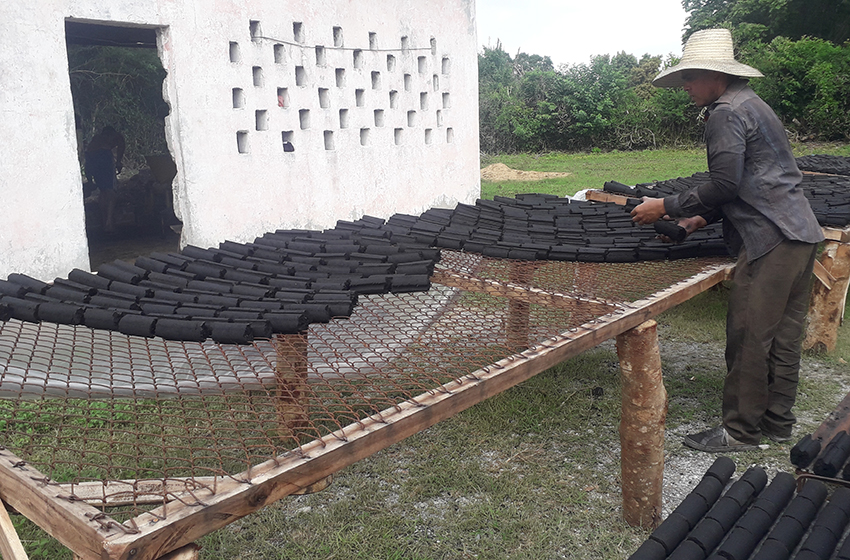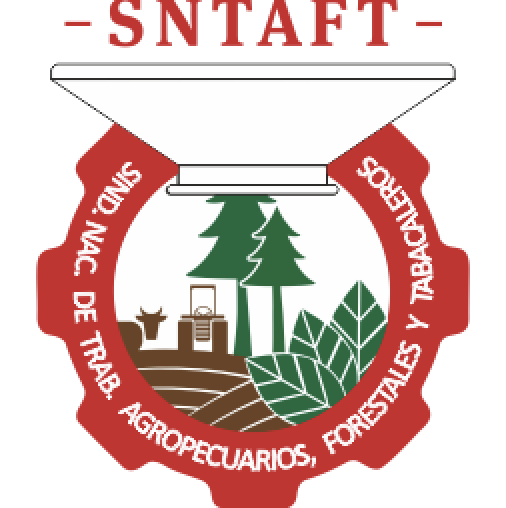GAF
Coal briquettes gain followers in Majibacoa
Las Tunas.- Fruit of the mixture of charcoal with cachaça and a process without too many complexities, charcoal briquettes are gaining popularity as a cheap alternative to alleviate the shortages of traditional fuels suffered by mini-industries and community kitchens in the municipality of Majibacoa.
Associated with the credit and services cooperative (CCS) Cuba Va, from the aforementioned territory of Las Tunas, they are its main promoters and weigh its advantages. They also put their wits to assemble their own machine to obtain them with a capacity of about three tons of briquettes daily. "Although we don't do that many, because we don't have enough space to dry them," says Rosmagnis Pupo Leyva, producer associated with that CCS. "As we use it, from an ecological point of view, fewer trees have to be cut down for firewood or charcoal," he says.
The effort, he points out, would not have been possible without the support of the Agropecuaria Integral and the Azucarera de Las Tunas companies, the Party and the Government in Majibacoa. Some becoming suppliers of raw materials such as cachaça and charcoal; others, unlocking the initial reluctance to this initiative.
Alexander Vidal works in the Los Ortega mini-industry belonging to the CCS Gerardo Antonio. He weighs the properties of a fuel that generates less smoke than coal. At the same time, his colleague Marcia Cabrera assures that the briquettes have been useful both in the kitchen of the unit itself and in their homes.
"The change is noticeable, when it is with firewood there is a lot of smoke, right now here I have three stoves lit and I do not feel any discomfort, this is wonderful, excellent," shows Maritza Pérez, cook of the community dining room in the Arroyo El Muerto town. Daily, she prepares food for the elderly and other low-income people in that town at the foot of the Central Highway. "The meal," he stresses, "is done." In another time when looking for firewood, tried to light, waited for the good flame, one takes a long time. Now the food is ready early and it is cooked in better conditions”.
The absence of liquefied gas or kerosene that Cuba suffers due to the US persecution of its imports of oil and its derivatives, combined with the effects of the global economic crisis caused by the pandemic of the new coronavirus, forced the return of the use of firewood and other biomass for cooking food; especially in rural areas.
"Cooking is done with quality," says Juan Santiesteban, a local self-employed person. Since you feed your oven with briquettes, your food processing and sales business breathes better. "Notice that with four kilograms it stays on for four hours and with a good temperature," he says, pointing to the oven.
“What we did with firewood and it took two hours, with this charcoal it is done in one. We leave clean for the house, nor do we get dirty when we cook, "says Osvaldo Iglesias Pérez, another food processor.
The points in favor of briquettes against coal and firewood also lie from the point of view of the preservation of the forest cover of the province, says Amado Luis Palma, Deputy Delegate for the Environment at the Delegation here of the Ministry of Science, Technology and Environment (Citma).
"Any energy alternative reduces pressure on the forest cover, because you will automatically substitute an alternative for firewood, which in this case is the biomass briquette of natural origin," he stresses. The expert also considers that these cooperative members have built their own machine to obtain them and using cachaça, a residue from the sugar production of the Majibacoa plant.
However, the briquettes not only added a new source of income for the cooperatives of the "Cuba Va" for their sale. They successfully explored other echelons of marketing with interested customers, but lacking the right kitchens. "Taking efficiency elements into account, we have built several stoves with ideal characteristics for maximum use of fire," explains Rosmagnis Pupo.
Among its first recipients are the La Rotonda ranch belonging to the Palmares hotel chain, the cafeteria of the Doctor Ernesto Guevara General Teaching Hospital and the processing center attached to the Business Company of the town of Calixto, in the municipality of Majibacoa.
"This new stove is 100 percent better than the old one, since we don't have smoke in our eyes, the lungs rest from contamination; In addition, it is super-fast, it has an efficiency and a continuous candle and the briquette is very durable when it is lit”, confirmed Argelio Álvarez Torres, cook at the processing center.
This initiative of the Majibacoa cooperatives would be the confirmation that in this world context




